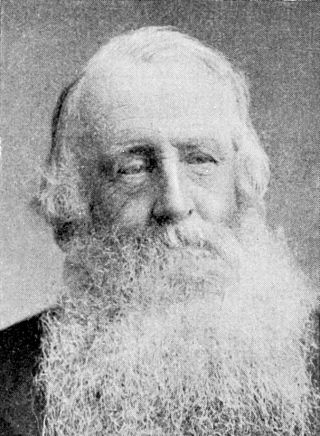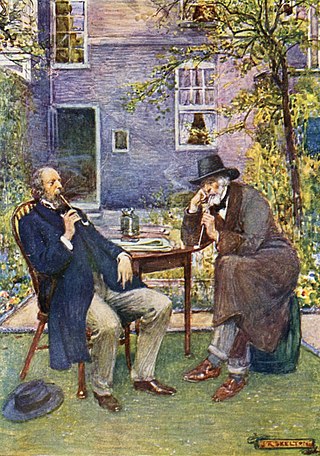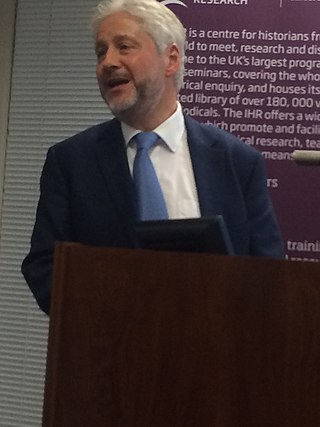
In the history of the United Kingdom and the British Empire, the Victorian era was the period of Queen Victoria's reign, from 20 June 1837 until her death on 22 January 1901. Slightly different definitions are sometimes used. The era followed the Georgian period and preceded the Edwardian period, and its later half overlaps with the first part of the Belle Époque era of Continental Europe.

In the United Kingdom, the Edwardian era spanned the reign of King Edward VII from 1901 to 1910, and is sometimes extended to the start of the First World War. The death of Queen Victoria in January 1901 marked the end of the Victorian era. Her son and successor, Edward VII, was already the leader of a fashionable elite that set a style influenced by the art and fashions of continental Europe. Samuel Hynes described the Edwardian era as a "leisurely time when women wore picture hats and did not vote, when the rich were not ashamed to live conspicuously, and the sun really never set on the British flag."

In English church history, Nonconformists were Protestant Christians who did not "conform" to the governance and usages of the state church, the Church of England.
Sir Charles Harding Firth was a British historian. He was one of the founders of the Historical Association in 1906. Esmond de Beer wrote that Firth "knew the men and women of the seventeenth century much as a man knows his friends and acquaintances, not only as characters but also in the whole moral and intellectual world in which they lived."

Edward Hyde, 1st Earl of Clarendon, was an English statesman, lawyer, diplomat and historian who served as chief advisor to Charles I during the First English Civil War, and Lord Chancellor to Charles II from 1660 to 1667.

Edward Augustus Freeman was an English historian, architectural artist, and Liberal politician during the late-19th-century heyday of Prime Minister William Gladstone, as well as a one-time candidate for Parliament. He held the position of Regius Professor of Modern History at Oxford, where he tutored Arthur Evans; later he and Evans were activists in the Balkan uprising of Bosnia and Herzegovina (1874–1878) against the Ottoman Empire.
Geoffrey Rufus, also called Galfrid Rufus was a medieval Bishop of Durham and Lord Chancellor of England.
Geoffrey Ridel was the nineteenth Lord Chancellor of England, from 1162 to 1173.

James Edwin Thorold Rogers, known as Thorold Rogers, was an English economist, historian and Liberal politician who sat in the House of Commons from 1880 to 1886. He deployed historical and statistical methods to analyse some of the key economic and social questions in Victorian England. As an advocate of free trade and social justice he distinguished himself from some others within the English Historical School.
John Neville Figgis was an English historian, political philosopher, and Anglican priest and monk of the Community of the Resurrection. He was born in Brighton on 2 October 1866. Educated at Brighton College and St Catharine's College, Cambridge, he was a student of Lord Acton at Cambridge, and editor of much of Acton's work.

Victorian literature refers to English literature during the reign of Queen Victoria (1837–1901). The 19th century is considered by some to be the Golden Age of English Literature, especially for British novels. It was in the Victorian era that the novel became the leading literary genre in English. English writing from this era reflects the major transformations in most aspects of English life, from scientific, economic, and technological advances to changes in class structures and the role of religion in society. Famous novelists from this period include Charles Dickens, William Makepeace Thackeray, the three Brontë sisters, George Eliot, Thomas Hardy and Rudyard Kipling.

Helen Violet Bonham Carter, Baroness Asquith of Yarnbury,, known until her marriage as Violet Asquith, was a British politician and diarist. She was the daughter of H. H. Asquith, Prime Minister from 1908 to 1916, and she was known as Lady Violet, as a courtesy title, from her father's elevation to the peerage as Earl of Oxford and Asquith in 1925. Later she became active in Liberal politics herself, and was a leading opponent of appeasement. She stood for Parliament and became a life peer.

Lawrence Goldman is an English historian and the former director of the Institute of Historical Research. A former editor of the Oxford Dictionary of National Biography, he has a PhD from the University of Cambridge. He is a fellow of the Royal Historical Society.

Sir Ernest Barker was an English political scientist who served as Principal of King's College London from 1920 to 1927.
The parliamentary visitation of the University of Oxford was a political and religious purge taking place from 1647, for a number of years. Many Masters and Fellows of Colleges lost their positions.

History of women in the United Kingdom covers the social, cultural and political roles of women in Britain over the last two millennia.

This is a bibliography of published works on the history of Wales. It includes published books, journals, and educational and academic history-related websites; it does not include self-published works, blogs or user-edited sites. Works may cover aspects of Welsh history inclusively or exclusively.
K. D. Reynolds is a historian who specialises in the Victorian era. She earned her D.Phil. at the University of Oxford, where in 1995 she completed her thesis under the title "Aristocratic women and political society in early- and mid-Victorian Britain". As of 1996, she was a Research Editor for the New Dictionary of National Biography. She has contributed or revised approximately 259 articles for the online edition of the Oxford Dictionary of National Biography. Subjects have included Queen Victoria and Diana, Princess of Wales.
Julie-Marie Strange, FAcSS is a historian. Since 2019, she has been Professor of Modern British History at Durham University.
Jose Ferial Harris, FBA, FRHistS is a historian and retired academic. She was Professor of Modern History at the University of Oxford from 1996 to 2008, and a fellow and tutor at St Catherine's College, Oxford, from 1978 to 1997.











